Ideology
Click Here to Download The Ideology of Betar, written originally in 1923.
Betar’s legacy is rooted in the bold vision of Ze’ev Jabotinsky. Imagine Jabotinsky urging European Jews to leave before the Holocaust. Picture the Irgun forcing the British to withdraw from the Land of Israel. Recall Joseph Trumpeldor at Tel Hai, mortally wounded but proclaiming, “Never mind, it is good to die for our country.” Think of the Betar youth who formed Plugat Hakotel, defending Jews praying at the Western Wall.
This is Betar: a movement shaped by sacrifice, action, and unwavering love for the Jewish people.
Reviving a Legacy in America
Today, Betar USA rekindles the ideals of Jabotinsky to protect and empower the Jewish community here at home. His philosophy offers a guide to life, emphasizing honor, strength, and the pride of Jewish identity. Betar’s aim remains simple, though challenging: to form a “normal,” “healthy” Jew—capable, united, self-reliant, and proud.
Core Principles of Betar
Ahavat Israel
love of Jewry. Jabotinsky taught us we must stand by our fellow Jews – and love them and stand with them. This is something which cannot be emphasized enough. Love the Jewish people.
Hadar
Hadar is a Hebrew word which hardly is at all translatable into another language: It combines various concepts such as outward beauty, respect, self-esteem, politeness, faithfulness. The only suitable “translation” into the language of real life must be the Betari – in his dealings, actions, speech and thought.
Barzel
Iron - Be not afraid. Do not allow Jews to be taken advantage of. We must support Jews who fight and protect the Jewish people. The philosopher Max Nordau has been quoted as telling the Jewish leader Ze’ev Jabotinsky that “the Jew learns not by way of reason, but from catastrophes. He won’t buy an umbrella merely because he sees clouds in the sky. He waits until he is drenched and catches pneumonia.”
Ahavat Yisrael
– Love of the Jewish People
Jabotinsky taught that love for fellow Jews is not optional—it is essential. Betar stands for every Jew, everywhere, reminding us to be proud, supportive, and united. This love must be expressed not just in words, but through unwavering action.

Hadar
– Dignity and Jewish Pride
Hadar has no exact English translation. It encompasses dignity, self-respect, grace, and moral clarity. A Betari’s words, actions, and appearance should reflect Hadar—cleanliness, punctuality, honor, politeness, and strength. As Jabotinsky wrote, “Every word must be a word of honor, mightier than steel.”
Hadar means standing tall. It means standing right even when standing alone.

Barzel
– Strength and Defense
Strength is not aggression—it is the foundation of respect. Jabotinsky taught that the Jewish people must never be seen as weak or passive. “We were not created to teach morals to our enemies,” he wrote. “We must repay a blow with a blow.” This is not vengeance, but justice. We demand respect, not pity.
He envisioned a metaphorical “iron wall” to secure Jewish settlement and sovereignty. This iron will is still essential today—physically, emotionally, ideologically.
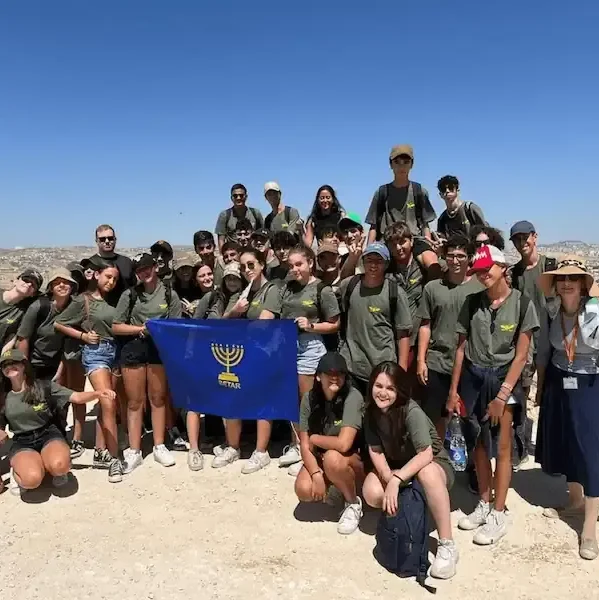
Bitachon
– Faith
Faith in God. Faith in ourselves. Faith in the destiny of the Jewish people. Jabotinsky believed in personal liberty, free markets, and the moral strength of the Jewish soul. His vision of a “fighting Jew” lives on in the IDF and in Jewish pride worldwide.
Bitachon is the strength to stand firm when others pressure Israel to compromise. It is the courage to be Jewish without apology.
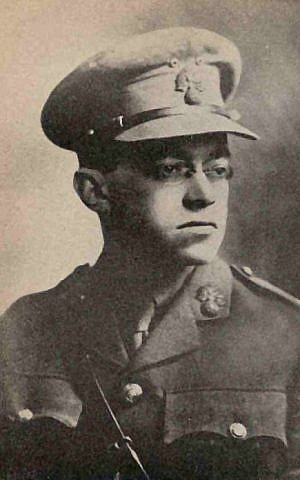
Celebrating Jewish Heroism
From Trumpeldor to Begin, from Stern to Sharon, from Tel Hai to the IDF—Betar honors those who fought for Jewish freedom and dignity. These heroes didn’t seek approval from the world. They demanded justice. Their legacy reminds us: Jews do not need to be silent, submissive, or invisible. We fight back. We build. We lead.
“The past lays a railroad track for the future.” — Ze’ev Jabotinsky
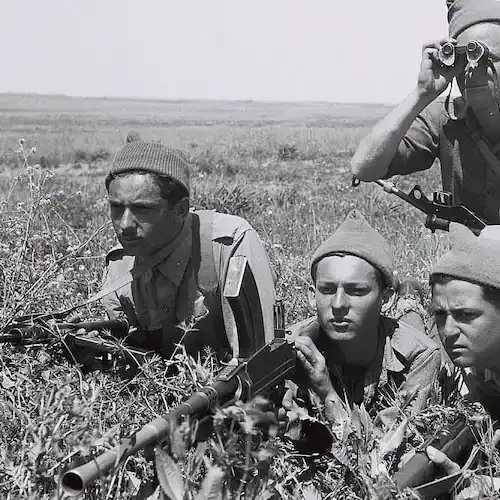
Unity and Conviction
Jabotinsky taught that truth demands conviction. “If you are not sure, stay home. But if you are sure—don’t look back.” Betar calls for unshakable unity. Not conformity—but commitment. Commitment to the Jewish people. Commitment to Israel. Commitment to our mission.
As Jabotinsky said: “There is no justice, no law, and no God in heaven—only one law: Jewish settlement.”

Conclusion: Jews Fight Back
We live in a world where antisemitism persists in new forms. Betar exists to ensure that Jews are not only protected—but proud, visible, and empowered. We cultivate strength, dignity, identity, and action.
As our motto declares:
#JewsFightBack
Betar remains steadfast in its mission: to lead with courage, protect with strength, and inspire with dignity—carrying the Jewish people’s proud legacy into the future.
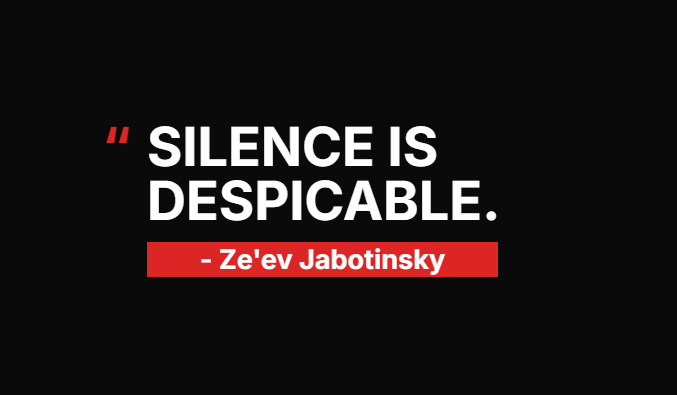
Betar Song
From the pit of decay and dust,
With blood and sweat,
Shall arise a race,
Proud generous and fierce,
Captured Betar, Yodefet, Masada,
Shall arise again in all their strength and glory
Hadar –
Even in poverty a Jew is a prince,
Whether slave or tramp,
You have been created the son of kings,
Crowned with the diadem of David,
Whether in light or in darkness,
Always remember the crown,
The crown of pride and Tagar
Tagar –
Through all obstacles and hindrances,
Whether you succeed or falter,
In the flame of revolt,
Carry the flame to kindle,
“Never mind”,
For silence is filth,
Sacrifice blood and soul,
For the sake of the hidden glory
To die or conquer the hill,
Yodefet, Masada, Betar.
Transliteration
Betar –
Migov ri-cavon vay afar,
Badam uvayeza,
Yukam lanu geza,
Gaon venadiv ve aksar,
Betar ha-nilkada, Yodefet, Masada,
Taromna beoz ve-Hadar
Hadar –
Ivri gam be oni ben sar,
Im eved im helech,
No sarta be melech,
Beketer David ne etar,
Baor u-va-seter,
Zachor et ha-keter,
Ateret gaon ve-Tagar
Tagar –
Al kol ma-atzur umetzar,
Im ta-al o-teret,
Ve lahav ha-meter,
Sa esh le-hazit,
“Ein Davar”,
Ki sheket hu refesh,
Hafker dam va-nefesh,
lema-an hahod hanistar
La-amut o likbosh et hahar,
Yodefet, Masada, Betar
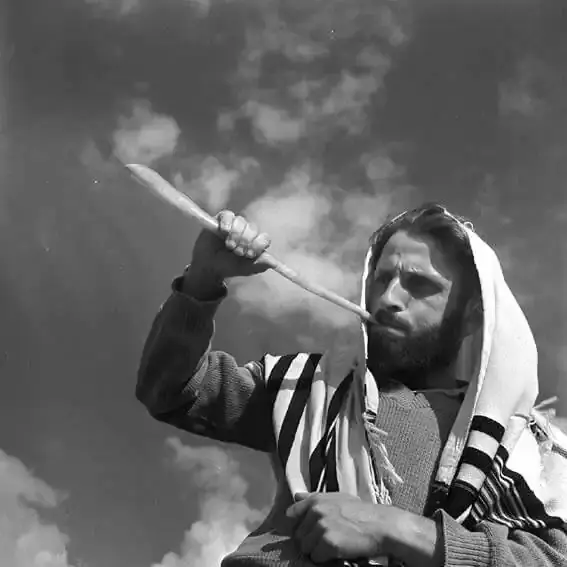
שיר בית"ר
בֵּיתָר –
מִגֹּב רִקָּבוֹן וְעָפָר,
בַּדָּם וּבַיֶּזַע,
יוּקַם לָנוּ גֶּזַע,
גָּאוֹן וְנָדִיב וְאַכְזָר,
בֵּיתָר הַנִּלְכָּדָה, יוֹדֶפֶת, מַסָּדָה,
תָּרֹמְנָה בְּעֹז וְהָדָר,
הָדָר –
עִבְרִי גַּם בְּעֹנִי בֶּן-שַׂר,
אִם עֶבֶד, אִם הֶלֶךְ,
נוֹצַרְתָּ, בֶּן-מֶלֶךְ,
בְּכֶתֶר דָּוִד נֶעֱטָר.
בָּאוֹר וּבַסֵּתֶר,
זְכֹר אֶת הַכֶּתֶר,
עֲטֶרֶת גָּאוֹן וְתַגָּר
תַּגָּר –
עַל כָּל מַעֲצוֹר וּמֵצָר,
אִם תַּעַל אוֹ תֵּרֵד,
בְּלַהַב הַמֶּרֶד,
שָׂא אֵשׁ לְהַצִּית,
“אֵין דָּבָר”,
כִּי שֶׁקֶט הוּא רֶפֶשׁ,
הַפְקֵר דָּם וָנֶפֶשׁ,
לְמַעַן הַהוֹד הַנִּסְתָּר
לָמוּת אוֹ לִכְבֹּשׁ אֶת הָהָר,
יוֹדֶפֶת, מַסָּדָה, בֵּיתָר